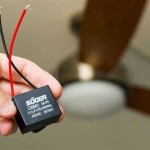Downlights for Kitchen Ceiling: Essential Aspects
Downlights have become increasingly popular for kitchen ceilings, offering a sleek and functional lighting solution. When choosing downlights for your kitchen, there are several essential aspects to consider to ensure you make an informed decision that meets your needs.
Lighting Requirements
Determine the lighting requirements for your kitchen by considering the size, layout, and tasks performed. Measure the dimensions of your kitchen and use an online lighting calculator to estimate the number of downlights needed. Consider ambient lighting for general illumination and task lighting for specific areas like the stovetop or island.
Type of Downlights
There are two main types of downlights: recessed and surface-mounted. Recessed downlights are installed directly into the ceiling, providing a seamless look. Surface-mounted downlights are attached to the surface of the ceiling, making them easier to install but less aesthetically pleasing.
Light Source
Downlights can use different light sources, including incandescent, fluorescent, LED, and halogen. LED downlights offer several advantages, such as energy efficiency, long lifespan, and dimmability. They are also available in a variety of color temperatures, from warm white to cool white, to suit your kitchen's ambiance.
Beam Angle and Spread
The beam angle and spread of downlights determine the area they illuminate. A narrow beam angle provides concentrated light, suitable for task lighting. A wider beam angle distributes light more evenly, making it ideal for ambient lighting. Consider your specific needs and the kitchen layout when choosing the appropriate beam angle and spread.
Additional Features
Some downlights offer additional features that can enhance their functionality and aesthetics. These features include:
- Dimmability
- Color-changing
- Remote control
- Adjustable beam angle
- Smart home integration
Installation Considerations
Professional installation is recommended for downlights to ensure proper functioning and safety. Factors to consider during installation include:
- Ceiling height
- Joist spacing
- Insulation
- Wiring
Conclusion
Choosing the right downlights for your kitchen ceiling requires careful consideration of the essential aspects discussed above. By understanding your lighting needs, selecting the appropriate type of downlights, and considering the beam angle, light source, additional features, and installation factors, you can create a functional and aesthetically pleasing lighting solution that enhances your kitchen's ambiance and tasks.

4 Reasons Why You Should Have Kitchen Downlights Simple Lighting Blog

Kitchen Ceiling Lights Downlights Direct

Best Kitchen Downlights A Handy Guide Arrow Electrical

The Best Downlights For Kitchens Soho Blog

Kitchen Downlights Recessed Lighting For Kitchens Direct

Cost To Install Downlights Complete Connectrix Ltd

4 Reasons Why You Should Have Kitchen Downlights Simple Lighting Blog

Waterproof Kitchen Downlights Ip54 7w 30w Grnled

Best Kitchen Downlights A Handy Guide Arrow Electrical

How To Plan Recessed Lighting In Your Kitchen
Related Posts








